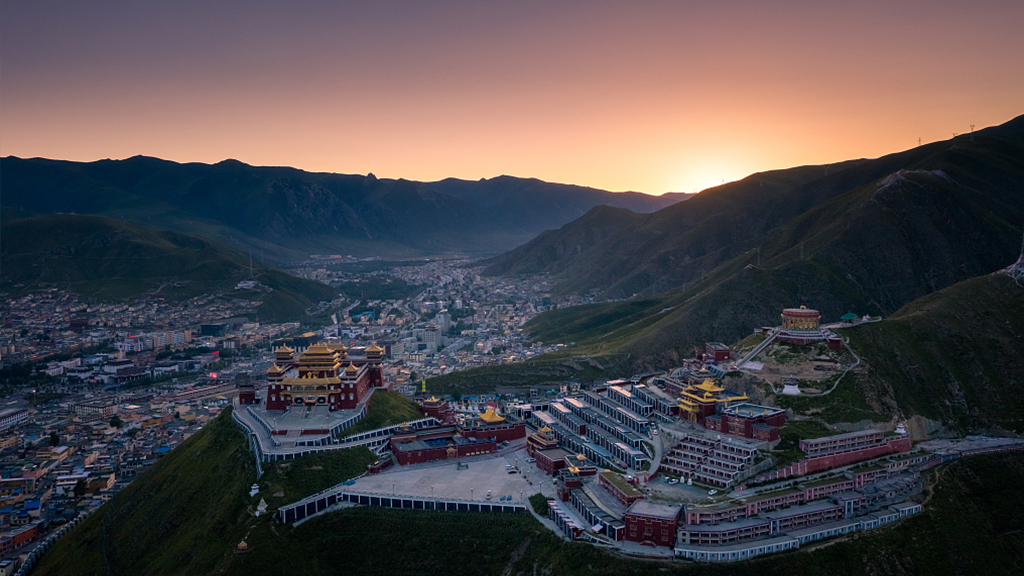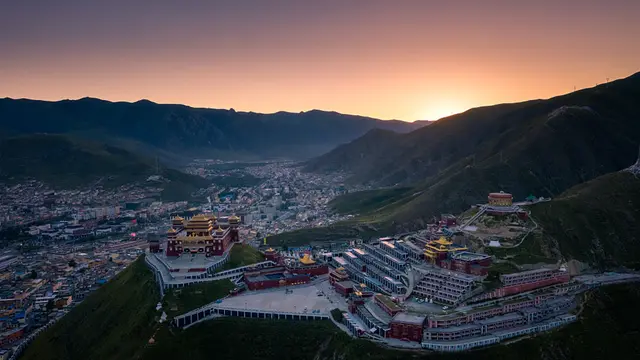04:39

I hadn't heard much about Yushu before I landed at its tiny airport, ours the only plane on the tarmac. Sitting at 3,700 meters above sea level, Qinghai Province's fourth-largest city is reached by flying over mountains and descending into a valley, where the buildings are stacked in between the towering peaks.
Yushu is one of the first rural cities in China I've been to that hasn't launched a huge tourism push, and herein lies its charm. The city's economy relies on yak products, farmed by the local herders who make up the bulk of its rural residents. Coming to Yushu from Beijing, you experience a completely different side of Chinese life – not the polished version that most tourist destinations in the country offer, but something homely and real.
To look at Yushu, you'd think this is quite a prosperous place. Most of the buildings are brand new. This is because 10 years ago, on April 14, 2010, a powerful earthquake flattened the city. In the aftermath, Yushu received substantial investment from the central government to rebuild. Today, the only reminder of the tragic event lies on the outskirts of the city – the Yushu Earthquake Memorial. This is the only building to be preserved as it remained in 2010, a stark reminder of the people who lost their lives, but also a symbol of how far the city has come.
The focal point of the city is Jiegu monastery, which sits above it against a backdrop of prayer flags and shrines glinting in the sunlight. On the surrounding mountains, the traditional air burials that still take place attract falcons circling overhead, waiting for their next meal. Buddhism is a huge part of life in the city, and monks are evident everywhere going about their daily life, from shopping down at the market to grabbing a pizza and having a chat at the local coffee shop.
The monastery grounds are open to the public, but on my walk up I was alone, apart from a group of young monks playing basketball. Due to the altitude, it takes longer than you might expect to climb, but there are plenty of vantage points to check out the view and catch your breath.
The monastery offers a 360-degree view of the city and surrounding valleys. It's quiet, with the sound of the cars below drowned out by the beating of the falcons' wings overhead. It's a special place, and it's easy to see why so many people here are so tightly bound to their spirituality.
Most of Yushu's restaurants take one of two forms. The first is influenced by the large Sichuan population living in the city, having moved here from the neighboring province. The alternative offers a more local ingredient - yak. It's most commonly served up boiled in large chunks with boiled potatoes, chili powder for dipping and a large knife to chop the meat into manageable pieces. It's tough to chew, but constitutes a hearty meal. All parts of the yak are eaten, my favorite being the tongue, which was more tender. On the side, suan nai (sour yoghurt) served with a local root adds some sweetness.
Unlike many other cities in China that come alive at night, Yushu grows quieter. After the monks return to their monastery, there's little more for people to do than wander along the river and check out the local markets. A few dance in the large square, and the sound travels through the streets.
Watching the sun go down over the river and the new-age light display is the perfect end to a day in Yushu, even if the light show is quite a contrast with the surrounding scenery. I only had one day to explore, but farther afield there's certainly much more to see, if you want mountains, culture and, of course, yak.
Have you been to Yushu? Let us know what you think!
 简体中文
简体中文

